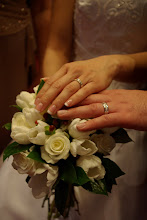 last week julie & i made a trip to the phoenix library. mainly to get library cards, but also to browse their selection. my original intent was to look over the CDs & maybe borrow a few to expand my musical horizons. i've discovered that library collections are great for that.
last week julie & i made a trip to the phoenix library. mainly to get library cards, but also to browse their selection. my original intent was to look over the CDs & maybe borrow a few to expand my musical horizons. i've discovered that library collections are great for that.
as it turned out, i borrowed exactly zero CDs and borrowed some books instead. one of them is becoming quite fascinating to me. as you know, dutch history is an interest of mine, as well as social justice issues. the phoenix library had a book that covered both. it's called "Blacks in the Dutch World: The Evolution of Racial Imagery in a Modern Society" by Allison Blakely. it talks about how, even in the historically tolerant society of the dutch, racism still exists. the inside of the front cover has an interesting quote: ""Blacks in the Dutch World" confirms that the existence of color prejudice in a predominately "white" society does not depend on the presence of racial conflict or even a significant "colored" population."
i find this quote interesting, in some ways because it states the obvious. on a personal level, i have never intentionally done anything for or against someone because of the color of their skin, but i know those thoughts of prejudice are in my head. it's a question of what i do with those thoughts when they are there. but, what that quote comes down to is that racism is not something you necessarily see on the surface, but it usually exists underneath. and you don't need to see someone of another color or culture to have prejudiced thoughts/feelings against them. that's something that can be ingrained by the culture around you.
i just started reading this book a couple days ago. it starts out with some of the older dutch history and how they would treat blacks and asians differently than people of european descent, and specifically dutch-based companies & their involvement with the slave trade.
i just finished reading the 1st chapter, which talks about the dutch east indies. the east india company, which did a lot of the slave trade at that time, had some interesting policies regarding the behavior of their workers. the workers were often sent to live in the colonies created as a result of some of this "trade".
"East India Company policy for much of the period was to restrict immigration by Dutch women and to recruit bachelors from the Netherlands and have them marry or take Asian women concubines, who, if slave, were first freed, baptised, and given a Christian Dutch or Portuguese name. This pragmatic strategy, aimed at ensuring the most stable type of service force, is indicative of the pragmatic approach taken concerning racial mixing. A related further measure was restriction of admission into the Netherlands of Asian wives and children of Dutchmen. Meanwhile, within the Dutch East Indies the Eurasian offspring of the mixed marriages became the preferred marriage partners in the society which developed. One result of the combination of practices was that nearly all members of society were raised by Asian women. Moreover, the racially mixed society as a whole was matrilineal, with Asian-born Dutch sons usually sent to the Netherlands for careers and new bachelor recruits brought in for company manpower." page 15 of "Blacks in the Dutch World"
i found this quite fascinating, simply because i didn't know the asian culture played a strong role in dutch culture. i can't wait to get more into this book and find out more.


0 comments:
Post a Comment